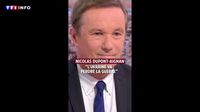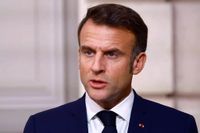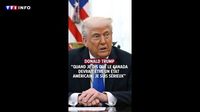Nicolas Dupont-Aignan, the leader of the "Stand Up France" party, has called for the resignation of French President Emmanuel Macron, accusing him of fabricating a Russian threat to solidify his power and enrich himself at the expense of the French public.
On March 22, 2025, Dupont-Aignan stated, "Macron is creating a false Russian threat to hold onto power and line his pockets at the expense of the French people. His removal from office is a vital necessity," as reported by Caliber.Az. This statement reflects a growing sentiment among some French politicians who believe that the political climate is being manipulated.
Earlier, on March 5, Macron indicated he would engage in discussions about potentially extending France's nuclear deterrence to other European nations, a response to a proposal made by German Chancellor candidate Friedrich Merz. Macron emphasized that France's nuclear arsenal has been pivotal in maintaining peace and security in Europe since 1964. He argued that it is critical for Paris to not remain indifferent in a world fraught with dangers. In his speeches, Macron cautioned against underestimating the threat posed by Russia, and also criticized the pacifist attitude of former U.S. President Donald Trump.
This political tension unfolds against the backdrop of Dupont-Aignan's ongoing efforts to strengthen his party as he positions himself for the next presidential election in 2027. On March 8, 2025, at their annual gathering, he announced his intention to run for the presidency for the fourth time. To support this campaign, he is working to reorganize the party at both regional and departmental levels.
A significant development in Dupont-Aignan's strategies is the appointment of Reynald Cronier, a former business leader in Béarn, as the new departmental secretary for "Debout la France" in the Pyrénées-Atlantiques and Landes. This appointment occurs during a period when Dupont-Aignan seeks to revitalize the party following activities that had waned since the departure of Pascal Lesellier in 2020.
Meanwhile, there are significant international implications regarding Dupont-Aignan's comments. He has suggested that Ukraine is on a path to defeat in its ongoing conflict, remarking just the day prior, on March 21, 2025, that, "Ukraine will lose the war, everyone knows it, it's over, Europe is pretending to organize." These comments resonate with a faction of French and European political thought that questions the viability of Ukraine's defense efforts against Russia.
The implications of these statements and political maneuvers extend beyond France's borders, potentially complicating the European Union's strategies toward security and military alliances. Macron’s initiative to discuss nuclear deterrence could either strengthen France’s position in Europe or expose divisions among member states wary of nuclear escalation.
As Dupont-Aignan calls for Macron’s resignation, the French president remains focused on his assertions regarding national security and the need for a united European front in the face of external threats. The contrasting narratives between Dupont-Aignan’s critique and Macron’s defense of his policies highlight a critical juncture in French politics, where national sentiment regarding security, economic stability, and leadership is under intense scrutiny.
In the coming weeks, the dialogue surrounding Macron's leadership and the viability of Dupont-Aignan’s presidential ambitions will likely become more pronounced as both figures seek to consolidate their respective responses to France's intricate political landscape. As Dupont-Aignan rallies support for his cause, Macron’s commitment to preserving France’s role on the European stage showcases the broader complexities confronting contemporary governance.
Amidst these evolving dynamics, the French electorate remains watchful, reflecting a populace that is increasingly aware of the ramifications of political decisions and the leaders who guide them, making future elections a potential referendum on current leadership and direction.




